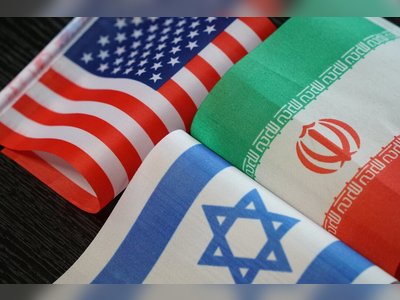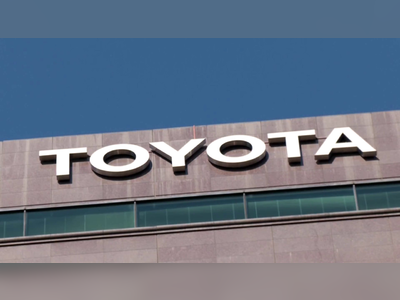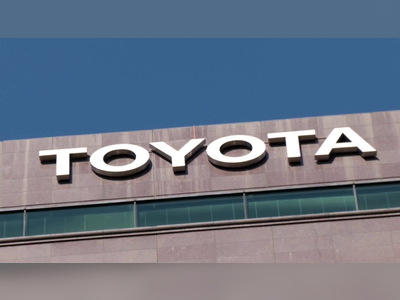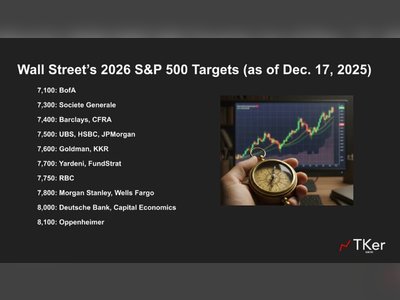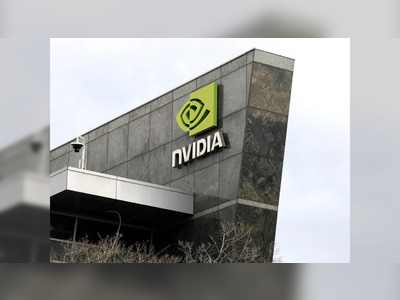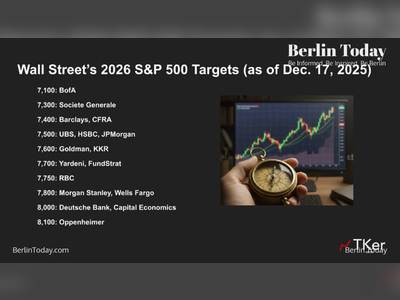
Elon Musk and Donald Trump: The Unofficial Alliance Affecting Global Politics
Examining the growing partnership between Elon Musk and Donald Trump, and its role in reshaping political and economic power dynamics.
On New Year's Eve, Elon Musk, dressed in a tuxedo, found himself at Mar-a-Lago, Florida, amidst an evening of celebration with political and business elites.
The occasion marked a pivotal moment when Musk, initially scrolling through his phone, joined President Donald Trump on the dance floor to the tune of YMCA by the Village People.
This unexpected camaraderie between the tech titan and the recently elected president was emblematic of Musk's evolving stance toward populist leaders globally, including figures such as Trump.
In the preceding year, Musk's influence surged significantly.
Trump, recognizing Musk's potential, unofficially appointed him as an 'Efficiency Czar,' likening his status to a shadow vice president.
Despite never holding elected office, Musk's ascension represents a new paradigm in which a tech entrepreneur holds considerable sway over domestic and international political landscapes, raising questions about the role of wealth in democracy.
A billionaire with an estimated fortune of over $421 billion, Musk's interventions in political spheres are not confined to the United States.
His actions on the global stage signal a strategic shift.
In December, Musk was photographed accompanying Trump to the reopening of Notre Dame in Paris, where he engaged with French President Emmanuel Macron.
Musk's presence extended to New York, where he met with Italian Prime Minister Giorgia Meloni, further underscoring his stance as an unofficial political player.
Beyond U.S. borders, Musk utilizes his vast social media platform, X (formerly Twitter), to influence political conversations.
His direct accusations against UK Labour leader Keir Starmer related to a grooming scandal provoked significant backlash.
Musk's public call for 'prison for Starmer' drew criticism from UK officials, demonstrating his increasing involvement in British political discourse.
Critics argue that Musk's digital influence, combined with immense financial resources, poses challenges to democratic integrity.
In the same vein, Musk has not shied away from supporting controversial political figures.
In Germany, Musk's endorsement of the far-right Alternative for Germany (AfD) party drew governmental scrutiny and concern, particularly due to the party's extreme views.
By dismissing associations with neo-Nazism and characterizing the AfD as a 'last spark of hope,' Musk's actions were denounced by German officials as interference in national politics, raising alarms about the unchecked power of individual influence in democratic elections.
Musk's political entanglements are inextricably linked with his expansive business interests.
The conglomerates he oversees, such as SpaceX, Tesla, and Neuralink, often rely on substantial government contracts, subsidies, and regulatory decisions.
Consequently, Musk's ability to wield political leverage could significantly direct future industrial landscapes.
His lobbying efforts and sway over regulatory bodies illustrate a blurring line between corporate interests and political influence.
Internationally, Musk's support for polarizing figures such as Italy's Giorgia Meloni and Canada's Pierre Poilievre, alongside vocal criticisms of Brazil's political system, reflect a pattern of interventionism.
In Latin America, Musk's backing of Venezuela's opposition and comments on Brazilian electoral dynamics emphasize the breadth of his growing reach.
The partnership between Musk and Trump exemplifies a strategic alliance with formidable implications.
Musk's financial support of Trump's campaign and visible endorsement during election cycles highlight this synergistic relationship.
By aligning his expansive business interests with Trump's political ecosystem, Musk may indeed be reshaping American political discourse for the foreseeable future.
While this partnership initially appears mutually advantageous—securing regulatory favor for Musk and aiding Trump’s political ambition—it raises pressing concerns.
The consolidation of influence among unelected figures like Musk poses challenges not only to democratic processes but also to the equitable distribution of power.
Musk’s dual capacity in steering public dialogue and controlling significant economic sectors places him uniquely within the modern geopolitical framework.
As the Musk-Trump alliance continues to evolve, its long-term effects on global politics and economic landscapes remain a subject of intense scrutiny.
What is apparent is that the confluence of business acumen and political influence seen in figures like Musk represents a potential reordering of traditional governance structures, where individual influence may redefine policy directions on a global scale.
The occasion marked a pivotal moment when Musk, initially scrolling through his phone, joined President Donald Trump on the dance floor to the tune of YMCA by the Village People.
This unexpected camaraderie between the tech titan and the recently elected president was emblematic of Musk's evolving stance toward populist leaders globally, including figures such as Trump.
In the preceding year, Musk's influence surged significantly.
Trump, recognizing Musk's potential, unofficially appointed him as an 'Efficiency Czar,' likening his status to a shadow vice president.
Despite never holding elected office, Musk's ascension represents a new paradigm in which a tech entrepreneur holds considerable sway over domestic and international political landscapes, raising questions about the role of wealth in democracy.
A billionaire with an estimated fortune of over $421 billion, Musk's interventions in political spheres are not confined to the United States.
His actions on the global stage signal a strategic shift.
In December, Musk was photographed accompanying Trump to the reopening of Notre Dame in Paris, where he engaged with French President Emmanuel Macron.
Musk's presence extended to New York, where he met with Italian Prime Minister Giorgia Meloni, further underscoring his stance as an unofficial political player.
Beyond U.S. borders, Musk utilizes his vast social media platform, X (formerly Twitter), to influence political conversations.
His direct accusations against UK Labour leader Keir Starmer related to a grooming scandal provoked significant backlash.
Musk's public call for 'prison for Starmer' drew criticism from UK officials, demonstrating his increasing involvement in British political discourse.
Critics argue that Musk's digital influence, combined with immense financial resources, poses challenges to democratic integrity.
In the same vein, Musk has not shied away from supporting controversial political figures.
In Germany, Musk's endorsement of the far-right Alternative for Germany (AfD) party drew governmental scrutiny and concern, particularly due to the party's extreme views.
By dismissing associations with neo-Nazism and characterizing the AfD as a 'last spark of hope,' Musk's actions were denounced by German officials as interference in national politics, raising alarms about the unchecked power of individual influence in democratic elections.
Musk's political entanglements are inextricably linked with his expansive business interests.
The conglomerates he oversees, such as SpaceX, Tesla, and Neuralink, often rely on substantial government contracts, subsidies, and regulatory decisions.
Consequently, Musk's ability to wield political leverage could significantly direct future industrial landscapes.
His lobbying efforts and sway over regulatory bodies illustrate a blurring line between corporate interests and political influence.
Internationally, Musk's support for polarizing figures such as Italy's Giorgia Meloni and Canada's Pierre Poilievre, alongside vocal criticisms of Brazil's political system, reflect a pattern of interventionism.
In Latin America, Musk's backing of Venezuela's opposition and comments on Brazilian electoral dynamics emphasize the breadth of his growing reach.
The partnership between Musk and Trump exemplifies a strategic alliance with formidable implications.
Musk's financial support of Trump's campaign and visible endorsement during election cycles highlight this synergistic relationship.
By aligning his expansive business interests with Trump's political ecosystem, Musk may indeed be reshaping American political discourse for the foreseeable future.
While this partnership initially appears mutually advantageous—securing regulatory favor for Musk and aiding Trump’s political ambition—it raises pressing concerns.
The consolidation of influence among unelected figures like Musk poses challenges not only to democratic processes but also to the equitable distribution of power.
Musk’s dual capacity in steering public dialogue and controlling significant economic sectors places him uniquely within the modern geopolitical framework.
As the Musk-Trump alliance continues to evolve, its long-term effects on global politics and economic landscapes remain a subject of intense scrutiny.
What is apparent is that the confluence of business acumen and political influence seen in figures like Musk represents a potential reordering of traditional governance structures, where individual influence may redefine policy directions on a global scale.
AI Disclaimer: An advanced artificial intelligence (AI) system generated the content of this page on its own. This innovative technology conducts extensive research from a variety of reliable sources, performs rigorous fact-checking and verification, cleans up and balances biased or manipulated content, and presents a minimal factual summary that is just enough yet essential for you to function as an informed and educated citizen. Please keep in mind, however, that this system is an evolving technology, and as a result, the article may contain accidental inaccuracies or errors. We urge you to help us improve our site by reporting any inaccuracies you find using the "Contact Us" link at the bottom of this page. Your helpful feedback helps us improve our system and deliver more precise content. When you find an article of interest here, please look for the full and extensive coverage of this topic in traditional news sources, as they are written by professional journalists that we try to support, not replace. We appreciate your understanding and assistance.
